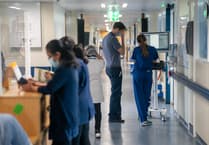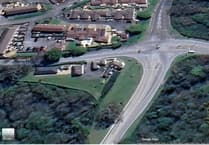PART of Devon’s health service has managed to emerge from its ‘special measures’ rating after securing improvements in various areas.
NHS Devon was put into the bottom rung when it was assessed in 2022/23, which triggered the health service’s recovery support programme (RSP).
The organisation was placed into the National Oversight Framework Segment 4 – the worst category in the national assessment.
As part of the rating, the three acute providers within Devon – Torbay and South Devon NHS Foundation Trust, Royal Devon University Healthcare NHS Foundation Trust and University Hospitals Plymouth NHS Trust – were also categorised on the bottom level.
But, Devon County Council’s health and adult care scrutiny committee heard how NHS Devon had secured a recent partial victory.
“It has been recognised regionally and nationally that improvements have been made within the Devon system during the organisations’ time in segment 4 and the associated national Recovery Support Programme (RSP),” an NHS spokesperson said.
“As a result, NHS Devon and Royal Devon formally exited the RSP in August 2025 and this means the previous RSP exit criteria no longer apply to both organisations having demonstrated sufficient progress against all exit criteria for leadership, urgent and emergency care, and elective performance.
“NHS Devon will continue to receive support for finance and strategy, and we will be agreeing a medium-term financial plan, and health and care strategy by the end of September to set us on a strong footing going forward.”
Meanwhile, Torbay and Plymouth will continue to be supported regionally and nationally to achieve “sufficient progress to also exit the RSP”.
Chris Morley, locality director at NHS Devon, welcomed the “successful exit” from the recovery programme.
“It reflects the progress made in a number of areas,” he said.
“We know there is still more to do to improve outcomes for patients, but it is good to acknowledge the progress made.”
Mr Morley also confirmed that the Devon ICB was now included in a new cluster.
There is a national move to group England’s 42 ICBs together into 26 clusters, meaning the pair of Devon and Cornwall and the Isles of Scilly ICBs will become one cluster.
The aim of the move is to reduce costs, although Mr Morley acknowledged a formal merger was still required, and expected in either April next year or 2027 subject to local government reorganisation and further guidance.





Comments
This article has no comments yet. Be the first to leave a comment.